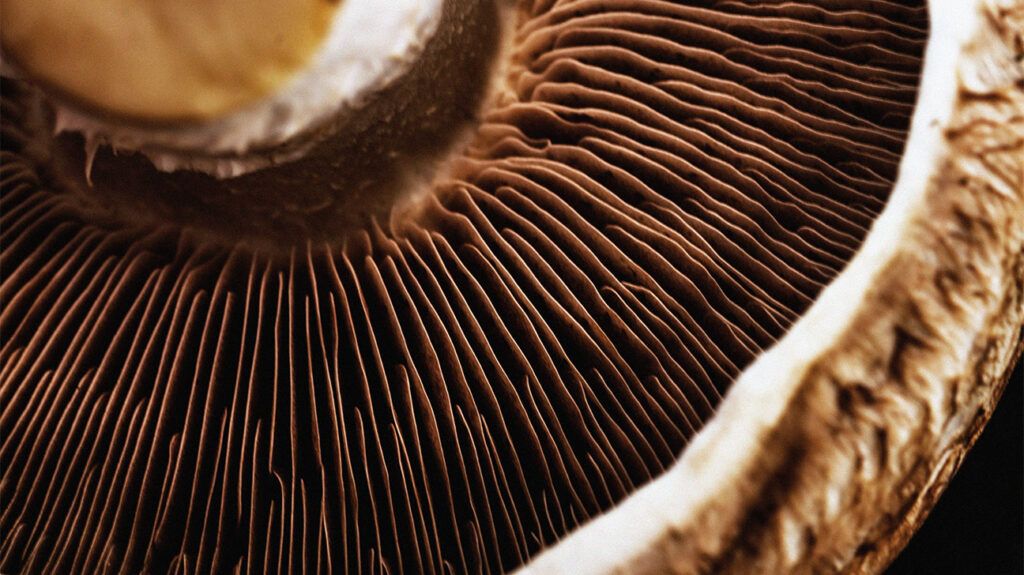Mushrooms provide a range of antioxidants and other nutrients that may contribute to heart health and protect the body from cancer. Nutritional profiles vary between types of mushrooms.
From puffballs to truffles, mushrooms can range from everyday fare to a costly delicacy. People can buy them fresh, canned, or dried.
This article provides information about the nutritional contents and possible health benefits of eating mushrooms. It also gives some tips on preparing and serving mushrooms.
A note about sex and gender
Sex and gender exist on spectrums. This article will use the terms “male,” “female,” or both to refer to sex assigned at birth. Learn more.

Mushrooms contain protein, vitamins, minerals, and antioxidants. These can have various health benefits.
Cancer
Antioxidants, like many found in mushrooms,
Some sources have suggested that selenium may help prevent cancer, but a 2017 review found no evidence to confirm this.
Mushrooms also contain a small amount of vitamin D. There is some evidence that vitamin D supplementation may help prevent or treat some kinds of cancer. However, according to a
Choline is another antioxidant in mushrooms. Some
Diabetes
Dietary fiber may help manage a number of health conditions, including type 2 diabetes.
A
A cup of sliced raw mushrooms, weighing 70 grams (g), provides
The
Learn about foods to eat and avoid with diabetes.
Heart health
The potassium, vitamin C, and fiber in mushrooms may contribute to cardiovascular health.
Learn about the best foods for heart health.
Potassium
Potassium can help regulate blood pressure, and this may decrease the risk of hypertension and cardiovascular disease. The
A person should aim to consume around 2,600 milligrams (mg) of potassium per day for females, and 3,400 mg per day for males. One cup of mushrooms contains around 223 mg of potassium. However, people with certain conditions such as kidney disease may need to consume less potassium. A person’s doctor can advise on how much potassium they should consume each day.
Vitamin C
A
A person should consume around 75–90 mg of vitamin C per day. One cup of mushrooms contains around 1.47 mg of vitamin C.
Fiber
There is some
The stem of shiitake mushrooms (Lentinula edodes) is a
In pregnancy
Many people take folic acid, or folate, supplements during pregnancy to boost fetal health, but mushrooms can also provide folate.
A cup of sliced raw mushrooms contains 11.9 micrograms (mcg) of folate. Current guidelines recommend that adults consume 400 mcg of folate each day. Pregnant people should aim for around 600 mcg.
Learn about foods to eat and avoid during pregnancy.
Other benefits
Mushrooms are rich in B vitamins, such as:
- riboflavin, or B-2
- folate, or B-9
- thiamine, or B-1
- pantothenic acid, or B-5
- niacin, or B-3
B vitamins help the body get energy from food and form red blood cells. A number of B vitamins also appear to be important for a healthy brain.
The choline in mushrooms can help with muscle movement, learning, and memory. Choline assists in maintaining the structure of cellular membranes and plays a role in the transmission of nerve impulses.
Mushrooms are also the only vegan, nonfortified dietary source of vitamin D.
Several other minerals that may be difficult to obtain from a vegan diet are available in mushrooms. These include:
- selenium
- copper
- iron
- phosphorus
Many types of mushrooms are edible, and most provide about the same quantities of the same nutrients per serving, regardless of their shape or size.
The table below shows how much of each nutrient a
| Per serving | Daily goals | |
|---|---|---|
| Energy (calories) | 15.4 g | 1,600–2,400 kcal |
| Protein (g) | 2.16 g | 46–56 g |
| Carbohydrate (g) | 2.28 g | 130 g |
| Calcium (mg) | 2.1 mg | 1,000–1,300 mg |
| Iron (mg) | 0.35 mg | 8–18 mg |
| Magnesium (mg) | 6.3 mg | 310–420 mg |
| Phosphorus (mg) | 60.2 mg | 700–1,250 mg |
| Potassium (mg) | 223 mg | 2,300–3,400 mg |
| Sodium (mg) | 3.5 mg | 2,300 mg |
| Zinc (mg) | 0.364 mg | 8–11 mg |
| Vitamin C (mg) | 1.47 mg | 65–90 mg |
| Vitamin D (international units) | 4.9 IU | 600 IU |
| Folate (mcg of of dietary folate equivalents) | 11.9 mcg DFE | 400 mcg DFE |
| Choline (mg) | 12.1 mg | 425–550 mg |
| Niacin (mg) | 2.53 mg | 14–16 mg |
It is important to note that daily goals can vary for each individual, particularly for calories, protein, and carbohydrates. It is best to contact a doctor for advice on daily targets based on individual circumstances.
Mushrooms also contain a number of B vitamins, including thiamine, riboflavin, B6, and B12.
A person’s doctor can tell them more about their nutritional goals based on their individual circumstances.
When buying fresh mushrooms, choose ones that are firm, dry, and unbruised. Avoid mushrooms that appear slimy or withered.
Store mushrooms in the refrigerator. A person should not wash or trim them until it is time to cook with them.
The Environmental Working Group, which assesses foods for their pesticide contents, placed mushrooms that grow in the U.S. in its 2023 list of the 15 cleanest foods, referring to relatively low traces of pesticides.
However, people should still wash and clean them carefully before using them to remove any soil and grit. If necessary, trim the ends of the stalks. You can use mushrooms whole, sliced, or diced.
To incorporate more mushrooms into the diet, try:
- sauteing any type of mushroom with onions for a quick, tasty side dish
- adding mushrooms to stir-fries
- topping a salad with raw, sliced cremini or white mushrooms
- stuffing and baking portobello mushrooms
- adding sliced mushrooms to omelets, breakfast scrambles, pizzas, and quiches
- sauteing shiitake mushrooms in olive oil or broth for a healthful side dish
- removing the stems of portobello mushrooms, marinating the caps in a mixture of olive oil, onion, garlic, and vinegar for 1 hour, then grilling them for 10 minutes
- adding grilled portobello mushrooms to sandwiches or wraps
To prepare dried mushrooms, leave them in water for several hours until they are soft.
Some people pick wild mushrooms, but it is essential to know which are edible, as some contain deadly toxins.
Wild mushrooms can make a tasty dish, but the toxins in some mushrooms can trigger fatal health issues. Some wild mushrooms also contain high levels of heavy metals and other harmful chemicals.
To avoid these dangers, only consume mushrooms from a reliable source.
There are more than 2,000 edible varieties of mushrooms. Some common edible mushrooms include.
They include:
- white, or “button”
- brown cremini
- portobello
- shiitake
- oyster
- wood ear
- enoki
Seasonal varieties available at farmer’s markets and some grocery stores include morel and chanterelle mushrooms.
Below are some commonly asked questions about mushrooms.
What do mushrooms do for a person’s body?
Mushrooms contain various vitamins, minerals, and antioxidants which may help to prevent several health conditions, such as cancer and diabetes, when consumed as part of a nutritionally balanced diet. They can also help boost cardiovascular health.
Are mushrooms good or bad for a person?
On the whole, mushrooms are extremely nutritious and good for a person’s health. They contain various vitamins, minerals, and antioxidants.
However,
Which mushroom is most edible?
Hen of the woods mushrooms, or maitake mushrooms, are edible,
Are mushrooms good for a person’s brain?
Lion’s mane mushrooms are a well-established candidate for brain health.
Mushrooms can be a healthful addition to a varied diet. They are easy to prepare and provide a range of nutrients.
Mushrooms may help protect against conditions such as diabetes and cancer. They can also benefit heart health, and provide a good source of folate during pregnancy.
People should only eat mushrooms from a reliable source, as some types are toxic.


